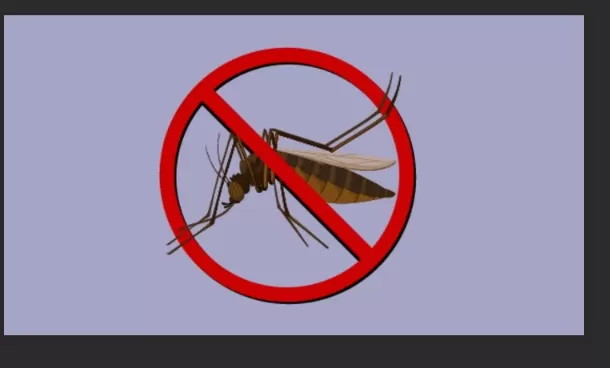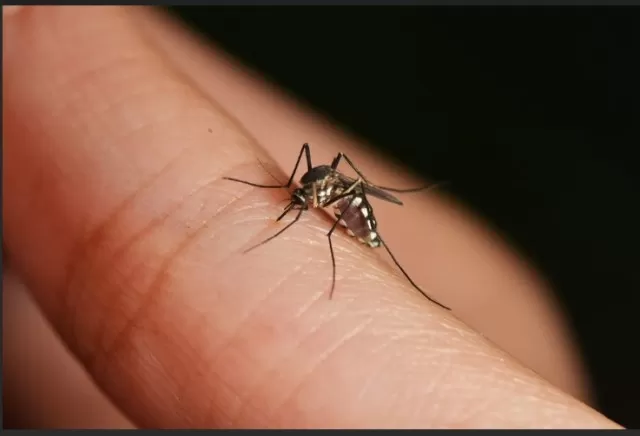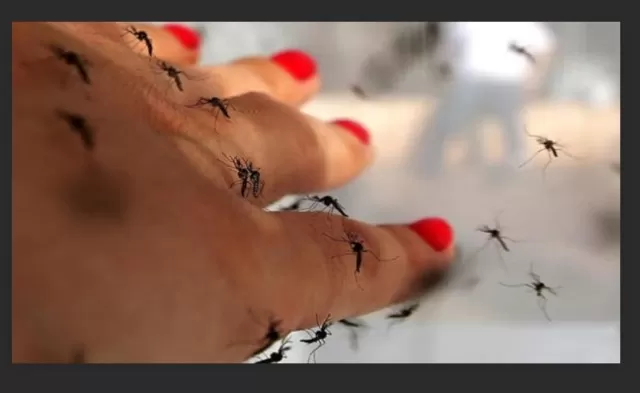Mosquito Myths Debunked: Clarifying Common Beliefs. It’s a truth universally acknowledged – mosquitoes possess an uncanny knack for turning joyful moments into itchy ordeals.
Whether you’re immersed in the serenity of gardening, savoring the flavors of a backyard barbecue, marveling at park fireworks, or casting your line into the tranquil waters of a lake, the ever-present bug factor can swiftly transform euphoria into exasperation. Yet fear not, for knowledge is your greatest ally in this battle against the tiny tormentors.
While a trove of valuable insights exists to shield you and your loved ones from the menacing threat of bug bites, the unfortunate reality is that a realm of misinformation lurks in the shadows as well. These persistent pests possess an uncanny ability to deceive, and deciphering fact from fiction becomes imperative. The mosquito’s unwelcome presence should not cast a shadow over your pursuits, but rather inspire a proactive stance against their vexing intrusion.
With determination and understanding, you can dispel the myths and unveil the truth surrounding mosquitoes. Equip yourself with reliable knowledge that empowers you to craft a robust defense against these airborne adversaries. From time-tested remedies to cutting-edge techniques, arming yourself with accurate information will prove pivotal in curbing their impact on your outdoor escapades.
Think Twice Before Making a Purchase!The Fascinating Life Cycle of Mosquitoes: Unveiling the Intricacies of Their Four Developmental Stages

Resist the Urge to Buy!Mosquitoes, those tiny but mighty creatures, undergo a captivating journey encompassing four remarkable life phases: egg, larva, pupa, and adult.
This enthralling transformation commences with the deposition of eggs in serene bodies of water, which soon hatch into voracious larvae, eagerly consuming aquatic organisms. The larval stage, marked by numerous molts, signifies a period of growth before transitioning into the mysterious pupal phase.
The grand finale reveals the emergence of the adult mosquito from its aquatic realm, heralding its pursuit of sustenance and continuation of its species. Astonishingly, this entire metamorphosis can transpire within a mere week.
Troublesome Encounters Beyond ImaginationThe moment the adult mosquito emerges, a cascade of challenges befalls both humans and their furry companions.
The relentless irritation inflicted by these incessant biters has sparked a tapestry of anecdotes and narratives, each attempting to capture the exasperation they invoke. Yet, amid these chronicles, misconceptions often take root, springing forth from misguided interpretations of observations.
Furthermore, the realm of ignorance occasionally gives rise to imaginative conjectures, weaving an intricate web of myths and unfounded suppositions.
In summary, the saga of mosquitoes is not one to be taken lightly.
Delving into the intricacies of their life cycle exposes a world of marvels, shedding light on the origins of these vexing insects. So, before succumbing to rash decisions, delve into the captivating chronicle of these creatures, and you may find yourself armed with a newfound understanding and appreciation for the complex dance of life.
“.
Misconception Debunked: The Not-So-Universal Mosquito Bite
Dispelling the Myth: Not All Mosquitoes Are Created Equal When It Comes to Biting.
It’s time to set the record straight: the belief that every mosquito is a relentless bloodsucker is nothing but a common misconception.
In reality, the fascinating world of mosquitoes holds a secret that might surprise you – not all of these tiny insects have a penchant for biting.
The Distinctive Purpose of Adult Mosquitoes: Reproduction Takes Center StageThe primary driving force behind the actions of adult mosquitoes is none other than the primal instinct of reproduction.
This biological imperative propels female mosquitoes to seek out specific sustenance: blood. However, let’s not forget their male counterparts, which harbor a different dietary preference.
Both male and female mosquitoes share an affinity for flower nectar and plant juices, drawing nourishment from these sources to sustain themselves.
The Intriguing Nutritional Quest of Female MosquitoesFor female mosquitoes, blood serves as more than just a culinary indulgence; it’s a crucial component in their reproductive journey.
These resourceful insects require additional nutrients to facilitate the egg-laying process, nutrients that are conveniently abundant in the blood of humans and animals. Equipped with specialized mouthparts, female mosquitoes skillfully pierce the skin, leaving a trail of saliva that acts as a lubricant, rendering the initial bite nearly painless.
It’s only when this saliva enters the skin that the telltale itchy and inflamed reaction takes center stage, leaving us with the undeniable proof of their presence.
The Myriad Faces of Mosquitoes: Diversity in BehaviorIt’s important to recognize the diversity within the mosquito realm.
While some females embark on blood-seeking missions to ensure the survival of their offspring, others focus solely on nectar and plant juices, contributing to the delicate balance of ecosystems. By challenging the notion that all mosquitoes are insatiable blood-seekers, we gain a richer understanding of these enigmatic insects and their intricate roles in the grand tapestry of life.
In conclusion, the truth behind mosquito behavior is far more nuanced than the stereotype suggests.
So, the next time you encounter these winged creatures, remember that not every mosquito is on a mission to leave an itchy reminder behind – some may simply be enjoying a floral feast.
Debunking the Myth: A Closer Look at Mosquito Feeding Times

Clarifying the Misconception: Mosquito Biting Habits Extend Beyond the Evening Hours.
Let’s unravel the truth about mosquito feeding habits and shed light on the common misconception that they exclusively target us during the evening.
While it’s accurate to say that mosquitoes tend to be more active in the evening hours during the summer, their feeding patterns encompass a broader spectrum of times and conditions.
A Dynamic Relationship with Light and TemperatureIt’s undeniable that mosquitoes exhibit heightened activity as the sun dips below the horizon, signaling the onset of evening.
However, this is not the sole window of opportunity for these persistent insects to indulge in their feeding frenzy. Rather, mosquitoes are astutely attuned to the interplay of light and temperature.
During moments of reduced illumination and milder temperatures, they seize the chance to seek out hosts for their blood meals.
The Peculiar Behavior on Sunny Summer DaysContrary to what one might expect, mosquitoes are surprisingly subdued on scorching, sun-drenched summer days.
The heat and brightness appear to deter their presence, relegating them to less conspicuous moments. Yet, this does not mean they vanish entirely; rather, they adopt a more discreet stance, awaiting the right conditions to make their appearance.
Unveiling the Versatile Timing of Mosquito FeedingWhile summer evenings may indeed witness a surge in mosquito activity, the range of opportune moments extends beyond this temporal boundary.
Overcast days spanning from spring through fall provide ample cover for these stealthy creatures, enabling them to unleash their biting prowess without constraint. Moreover, shaded areas throughout the day serve as bustling hubs for mosquito encounters.
The Unpredictable Nature of Mosquito ActivityIn essence, mosquitoes operate under the guiding principle of environmental favorability.
As long as the conditions align with their preferences—be it the dimness of evening, the clouded sky of a rainy day, or the consistent shade of certain locales—mosquitoes remain ready to engage in their blood-seeking endeavors.
To sum it up, the myth that mosquitoes only strike during the evening is but a fragment of the bigger picture.
By comprehending the intricate dance between light, temperature, and mosquito behavior, we gain a more nuanced understanding of these adaptable insects and their persistent presence in our lives.
Busting the Myth: The Significance of Mosquito Bites Goes Beyond Irritation
Dispelling the Misconception: Mosquito Bites Carry Potential for Serious Health Consequences.
It’s time to debunk the notion that a few mosquito bites are inconsequential.
While these tiny annoyances might seem trivial, they harbor the potential to unleash more than just irritation. History serves as a testament to the grave threat that mosquito-borne illnesses can pose, with summer malaria outbreaks casting a shadow of fear across the United States during the first half of the 20th century.
A Legacy of Vigilance: Battling Mosquito-Borne DiseasesOnce upon a time, the United States confronted the annual specter of summer malaria outbreaks, a haunting reminder of the havoc that mosquitoes could wreak.
The passage of time has brought about a transformation, thanks to innovations like window screens, air conditioning, and the strategic application of insecticides. These advances have collectively diminished the risk of mosquito-borne illnesses, constituting a triumph over an age-old adversary.
Persisting Shadows of Risk: The Potential Perils of Mosquito BitesNonetheless, the shadow of disease continues to loom in the realm of mosquito encounters.
The Centers for Disease Control and Prevention (CDC) has meticulously cataloged a roster of mosquito-borne illnesses that can potentially afflict individuals within the United States. Among these menacing maladies are West Nile virus, Dengue fever, and yellow fever, each capable of igniting a cascade of debilitating symptoms.
Symptoms and Vigilance: A Call to ActionVigilance becomes imperative in the face of a mosquito bite, particularly if one finds themselves in a high-risk locale.
The Warning Signs are crucial markers that demand attention: fever, headache, muscle pain, joint pain, rash, and vomiting. Monitoring oneself for these symptoms could make all the difference in early detection and timely intervention.
Should these indicators emerge, seeking medical treatment becomes paramount, underscoring the gravity of the potential consequences.
In essence, the myth that a few mosquito bites hold no weight is far from the truth.
By embracing a comprehensive understanding of the past, present, and potential impact of mosquito encounters, we equip ourselves with the knowledge needed to navigate the intricate realm of these minuscule yet potent vectors.
Dispelling the Sweetness Myth: Blood Type, Not Sweetness, Influences Mosquito Attraction

Unveiling the Truth: The Link Between Blood Type and Mosquito Preference.
It’s time to unravel a persistent misconception that has clung to the realm of mosquito encounters for far too long.
Contrary to popular belief, the perceived “sweetness” of one’s blood isn’t what sways the attraction of mosquitoes. Rather, the key factor lies in a person’s blood type, shedding light on the intricate dance between these tiny insects and their potential hosts.
Deciphering the True Attractiveness: Blood Type Holds the KeyWhile the notion of “sweet-blooded” individuals might conjure vivid imagery, it’s crucial to redirect our focus to the real determinants of mosquito preference.
The United States National Institutes of Health embarked on a scientific quest to unravel the intricate tapestry of mosquito behavior. Their findings dispelled the sweet-blooded myth and unveiled a more nuanced reality: blood type plays a pivotal role in dictating a person’s allure to these insistent insects.
A Hierarchy of Appeal: The Mosquito’s Blood Type PreferenceThe study’s insights revealed a fascinating hierarchy of mosquito attraction, intricately tied to blood types.
Mosquitoes displayed a distinct penchant for individuals bearing type O blood, marking them as the most enticing targets for these tiny hunters. Type B blood followed as the second most preferred, painting a vivid portrait of the mosquito’s selective taste.
Embracing Scientific Understanding: Navigating the Mosquito LandscapeWith this newfound understanding, we embark on a journey that shatters the sweetness myth and replaces it with a more precise depiction of mosquito behavior.
Armed with the knowledge that blood type, not sugar content, influences the propensity for mosquito bites, we equip ourselves with a valuable tool for navigating the outdoors more intelligently.
In summary, the allure of mosquitoes is rooted not in the sweetness of blood, but in the intricate interplay between blood types and mosquito preferences.
By dismantling the sweetness myth, we pave the way for a more accurate understanding of these miniature marvels and their intricate role in the ecosystem.
*The information is for reference only.